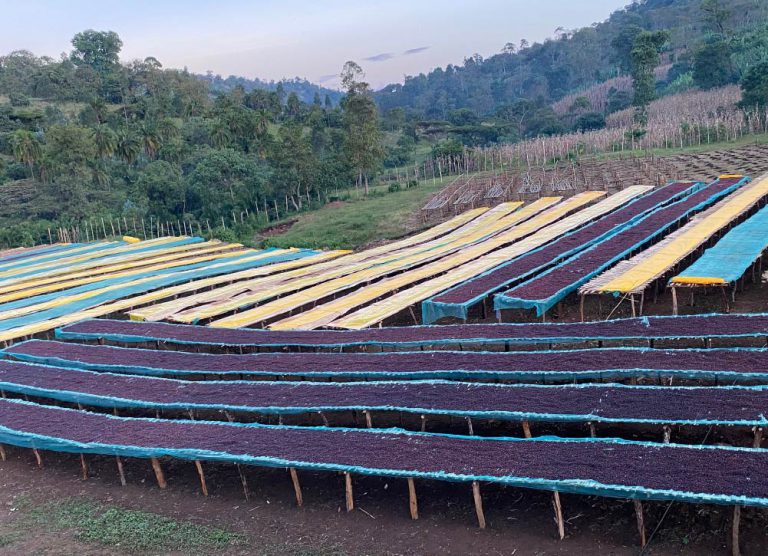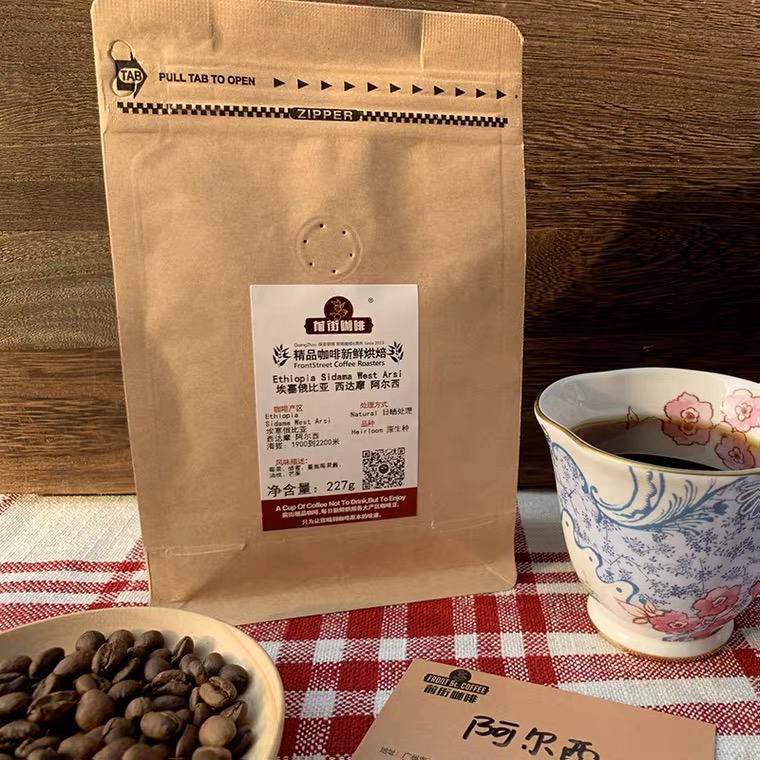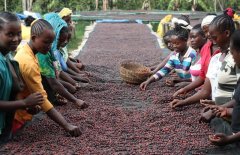Ethiopian heirloom coffee bean Gujisidamo flavor difference Arsi native coffee brewing suggestion
Although there are more than 10000 unique varieties in Ethiopia, it can be difficult to grow any of them on a large scale. Each variety has its own unique requirements and is usually applicable to a region of the country. Family heirlooms actually refer to Arabica coffee beans of origin that have survived for a long time and can even be found in the wild. But as it is spread to coffee farms around the country, it is usually divided into two types: JARC varieties and regional varieties.

"for example, Badessa, Khudumi, Miqe, Sawa and Wolichu are all native to Guji.
The growing recognition of heirloom varieties has also supported Ethiopian producers. Generally speaking, Ethiopian heirlooms tend to have floral and fruity cup contours, but the specific features do vary from region to region.
Generally speaking, in Guji, coffee tends to be fruity, with berry and jam flavors, while in Sidamo, coffee is more floral and has a strong apricot flavor.
The importance of purchasing a single variety, and roasters are advised to be careful when mixing family heirloom coffee. "I found that because Ethiopian heirlooms are so unique, mixing rather than separating varieties can really change the outline of the cup.

Qianjie coffee beans from Ethiopia are basically native species.
Arsi coffee beans from Sidamo are very layered, with obvious berry and lemon flavors of nectarines, as well as honey sweetness.
Here are some suggestions for cooking on Qianjie:
Recommended cooking method: hand flushing
Filter cup: v60 filter cup
Water temperature: 90-92 °C
Amount of powder: 15g
Powder / water ratio: 1:15
Degree of grinding: medium and fine grinding (Chinese standard No. 20 screen pass rate 80%) flushing and cooking method: segmented extraction
Important Notice :
前街咖啡 FrontStreet Coffee has moved to new addredd:
FrontStreet Coffee Address: 315,Donghua East Road,GuangZhou
Tel:020 38364473
- Prev

World champion Panama Rose Summer Coffee Bean Flavor Story of Hartman Family Coffee Pioneer
Producing area: Santa Clara, Chiriki Province: 0-1800 m Manor: Hartman Manor Variety: Rose Summer treatment: solarization Technology: natural Craft harvest: artificial Collection Certificate: bird Friendship Certificate Today, Qianjie Coffee will introduce to you the top selection of sun roses summer coffee beans from Manata Manor, Panama, the winner of the 2015 World Bean Baking Competition.
- Next

Panama washed Rosa Coffee Bean Flavor the planting advantage of Hartman Manor Coffee Bean in Balu volcanic area
Hartman Manor is located in the Balu volcanic area, the soil is rich in nutrients of volcanic soil, towering original trees become the best shade planting environment, shade planting coffee grows slowly, can brew higher sweetness and brighter acidity. The alpine microclimate of Chiriqui Volcan has also become the perfect base for Hartmann coffee.
Related
- Detailed explanation of Jadeite planting Land in Panamanian Jadeite Manor introduction to the grading system of Jadeite competitive bidding, Red bid, Green bid and Rose Summer
- Story of Coffee planting in Brenka region of Costa Rica Stonehenge Manor anaerobic heavy honey treatment of flavor mouth
- What's on the barrel of Blue Mountain Coffee beans?
- Can American coffee also pull flowers? How to use hot American style to pull out a good-looking pattern?
- Can you make a cold extract with coffee beans? What is the right proportion for cold-extracted coffee formula?
- Indonesian PWN Gold Mandrine Coffee Origin Features Flavor How to Chong? Mandolin coffee is American.
- A brief introduction to the flavor characteristics of Brazilian yellow bourbon coffee beans
- What is the effect of different water quality on the flavor of cold-extracted coffee? What kind of water is best for brewing coffee?
- Why do you think of Rose Summer whenever you mention Panamanian coffee?
- Introduction to the characteristics of authentic blue mountain coffee bean producing areas? What is the CIB Coffee Authority in Jamaica?

